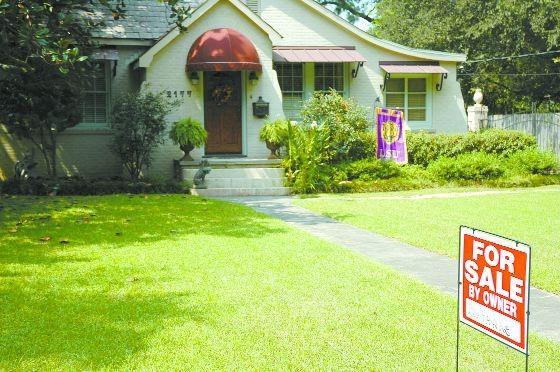As frantic Hurricane Katrina evacuees searched for places to live in Baton Rouge, realtor Della Neely moved a bedroll into her office so she could work through the night.
Her customers lined up at all hours trying to beat the crowds.
“Since Sept. 2, prices have been increasing,” said Neely, who runs her own real estate business. “I’m seeing that prices are jumping 10 to 15 percent within a week.”
Neely is not alone in her observation. With a recent rush to buy property in Baton Rouge, property values have increased as a result of price wars between desperate buyers.
Richard McLellan, a realtor with Burns & Company real estate group in Baton Rouge, said buyers were swarming to realtors last week “like bees to a beehive,” but the market has slowed down this week.
McLellan said many New Orleans evacuees had heard “scare stories” and thought they would not be able to return home for a long time. But now they are realizing the move to Baton Rouge was short-term.
Competing buyers have bid up 15 percent more than a house’s appraised value, McLellan said, but some winning bidders are not actually going through with sales.
“A lot of people can’t afford another house because of credit card bills, mortgage from their houses in New Orleans and other expenses,” McLellan said. “Their payments are still due, so they can’t buy here until they sell their houses down there.”
While Neely and other realtors are working around the clock to accommodate this unprecedented need for real estate, some analysts and economists are skeptical of the boom. They predict it is only a temporary price spike that will even out when evacuees return to their salvageable homes.
“There’s been a big price jump, but how permanent it is will be the big question,” said Kelley Pace, finance professor and director of the University’s Real Estate Research Institute. “Infrastructure will be a binding constraint to accept new people.”
All the available space in Baton Rouge will be absorbed very quickly, and most already has been absorbed, said Loren Scott, economics professor.
Scott said while he acknowledges that a significant part of New Orleans’ housing stock was destroyed, clearing land for more developments is a “big gamble.”
“Once New Orleans reopens, some people will go back,” he said. “The big question is when they will go back and how many people will leave.”
Though Baton Rouge is the closest big city to New Orleans and one of the principal cities receiving the diaspora of Katrina evacuees, Scott said Baton Rouge may not be able to handle the influx of people with its lack of infrastructure in housing, schools and hospitals.
“Baton Rouge doesn’t want to compete,” he said. ‘I’m not sure we can totally absorb that much. It’s important that other cities absorb these people, though I’m sure we’d like to absorb the very best businesses.”
Economics professor James Richardson said there is no model to project what will happen to Baton Rouge’s real estate market and economy. He said some individuals have a long-term commitment to stay in Baton Rouge, while some are leasing to minimize their financial obligation while waiting on the status of their homes.
Richardson said the businesses and people that move back to New Orleans will decide what type of city New Orleans will be and what role Baton Rouge will play since it may continue to be Louisiana’s major city.
“To a certain extent, we don’t control our own fate,” Richardson said.
Contact Leslie Ziober at [email protected]
Boom Town
September 21, 2005




